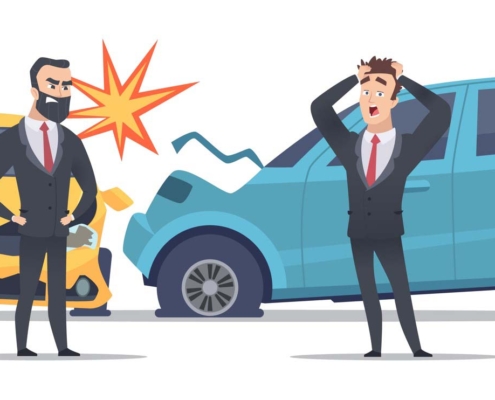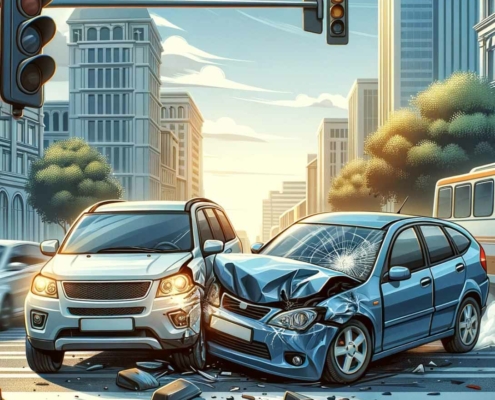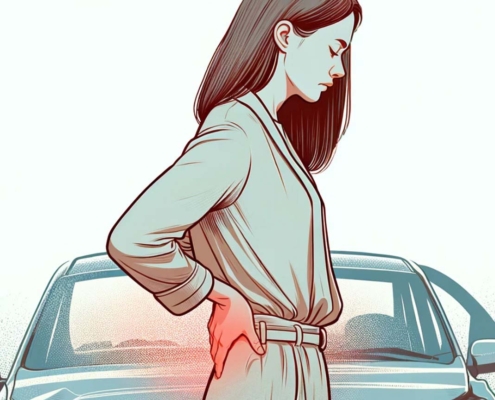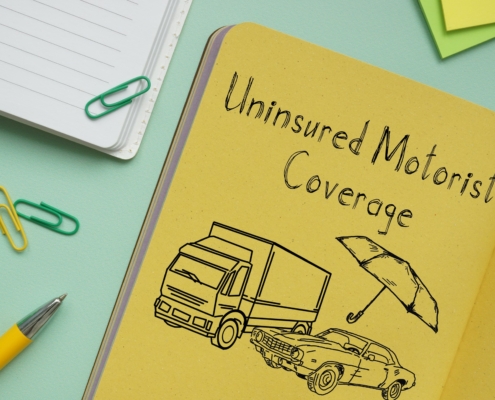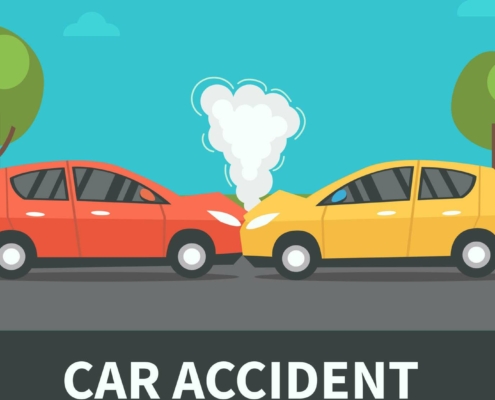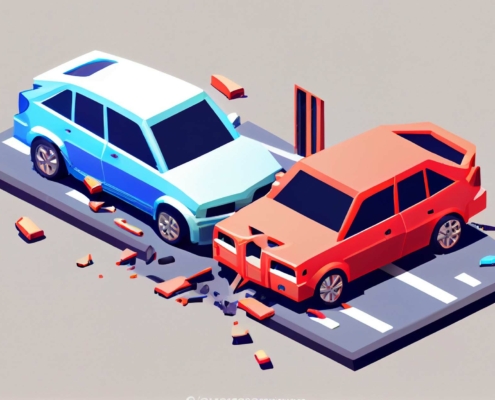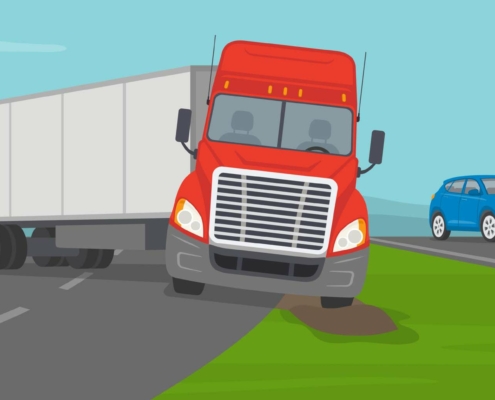Introduction
This article will be prefaced by saying that sexual assault is unacceptable regardless of what the victim is wearing, their behavior, who they are with, or how drunk they are. No one is ever “asking for it,” and non-consensual sexual contact is deplorable and a crime. This article will not be about never leaving your house and dressing in clothing so no one can ever see an inch of your skin. It is about having a plan if you ever feel uncomfortable. If someone has been a victim of sexual assault in the past, having a plan in place can help them feel safe and take steps toward recovery. A plan can help you escape a situation safely when you might otherwise be too panicked or too full of adrenaline to think clearly. If you or someone you love has been a victim of sexual assault, please contact our Los Angeles sexual assault attorney for a free consultation.
What can I do to be prepared if someone hurts me in my home?
Become familiar with places you can go if you need to escape.
These can be domestic violence shelters or a friend’s or family member’s house. Learn these routes inside, so you know exactly where to go if needed.
Create a code word.
Have one between you and people in your support network that you can message without suspicion to let them know you need help. Be clear about what you want their response to be: to call the police or that you need a place to stay. If children or younger siblings are in your house, have code words set up to tell them to hide or it is time to get out.
Keep in mind that your abuser might monitor your computer or phone.
Regularly clear your history, cookies, and cache to stop your history from being monitored. Also, consider using a friend’s phone or computer in a public place like a library or internet café.
Build a strong support network and know who can help you with what.
Find out what your friends, family, or even public resources can do for you. Who can give you a place to stay? Who can help you move out while your abuser is away? Who can take your kids for a little bit while you put plans in place and sort things out in preparation to escape? People can support you in many ways, and every bit of support will help you escape.
Have excuses to leave the house.
Have some excuses you can use to leave the house when a situation arises that you feel the potential to become dangerous. These include dog walking, picking up kids, running errands, work, hobbies, or school.
Stay a safe while at home.
If the person hurting you doesn’t live with you, then you can do things like change the locks, keep doors locked at all times, install security systems or motion detector lights, and tell anyone that has a key to your place that this person must not be let in (landlords, housemates, family members, etc.) If the person hurting you lives with you, then you can do things like install bells or other noisy items on your doorway to scare the offender off, sleep in living spaces so the offender risks being seen, keep your bedroom door locked, or put something heavy in front of it.
What can I do to be prepared if someone is stalking me?
Keep your cell phone charged and have emergency contacts programmed.
Memorize a few numbers just in case you can’t access your phone. This way, you are prepared to reach out if you are uncomfortable.
Change your routine.
Hopefully, you can lose your stalker if you take a different route to work, shop at different stores, or change where and when you exercise.
Tell people about it.
The more people who know about it, the more people who can step in and try and keep you safe. Keep a log of when and where you see the stalker, and anyways they try and contact you and speak to the police to see if there is anything they can do.
Stay safe and trust your gut.
Never engage the stalker or do anything that you feel uncomfortable doing. Try and frequent busy places or be with one other person as much as possible.
What can I do to be prepared to leave the person hurting me?
Have a bag packed and ready to go.
Include important documents, prescription drugs, and medical records. Include cash, keys, credit cards, a few changes of underwear, and maybe a change of clothes if you can fit them. If you are escaping with children, take their important documents too. There is no room for sentimental items. Take only the essentials. Hide this bag well, and if it is found, you can say it is a hurricane bag or a go bag in case of an emergency.
Know where you are going to go.
Look up local shelters or have a friend or family member who has agreed you can stay there just in case. Plan out a route, so you know exactly where to go when you leave. It is also wise to plan out a backup route if something goes wrong with your plan. (ie. You don’t have access to the car, or your abuser is somewhere along that route and might see you.) If you are driving, ensure the car always has a full tank and is in good order. If you are taking public transport, make sure you have an app or know the schedule.
Prepare your support network.
Let them know what is going on and talk to them about how they can support you. Keep them updated if you are leaving or planning to leave so they are on hand to support you, and let them know what to do if your abuser tries to contact them.
Prepare other people in your network that the offender might try to contact.
If you think there is a slight possibility they might contact your boss or other people you know but aren’t a part of your support network, then prepare them. You don’t have to tell them everything; you leave them for your health and safety and what you want them to do if they are contacted.
Contact the authorities.
If the abuser is a partner or immediate family member, contact the police and go to a shelter first for your safety.
If I am worried someone might be sexually assaulted, what can I do?
You can do many things to step in if you feel like someone is at risk of being sexually assaulted. Your safety comes first, so only do the things you feel you can do while staying safe. A helpful mnemonic device is CARE
Create a distraction to prevent the person at risk from getting to a safe place.
Interrupt their conversation by saying something like I’m starving, let’s get pizza, ” or “Can you come to help me find my phone? ” or “I’m so bored, let’s get out of here!”
Bring out food and drink and offer them to everyone, including the person or people you are worried about.
Draw people into an activity such as dancing, a game, a group photo, or a lively debate
Ask Directly.
Speak directly to the person at risk while the perpetrator isn’t around. Ask them if they feel uncomfortable, who they came here with, and if they want you to stay with them.
Refer to an authority if you don’t feel safe doing anything.
Speak to a security guard, employee, or bartender about your concerns. They will keep an eye on the situation and be likely to step in.
If you are worried about someone’s safety, call 911.
Enlist others to help you if you are too nervous about doing something yourself.
Ask your friends or other people to help you go and talk to the person at risk. There is safety in numbers, and the person at risk can hang out with you to avoid further harassment or assault.
Ask someone else to intervene. You can talk to their friends, family members, or boyfriend about your concern and ask them to escort them to the bathroom or out. Sometimes they may not have noticed the situation.
What can I do to prevent a sexual assault from occurring?
Statistically, most sexual assaults are committed by someone who knows the victim; therefore, as a bystander, there is an important role to be played by noticing odd behavior, if someone looks uncomfortable or if there is a sexual assault occurring. Bystanders could witness the events leading up to the assault or the actual sexual assault, and they have a chance to intervene. They don’t need to go in all gung ho and guns blazing. As mentioned above, they could create a distraction or call someone in authority who could step in.
Why don’t people help more often?
Even if you know it is the right thing to do. It isn’t easy to step in. Many people don’t like interfering in other people’s affairs, and others are worried about their safety. Here are some common reasons bystanders don’t take any action.
- They don’t know what to do or say.
- They don’t want to cause a scene.
- They think it’s none of their business.
- They don’t want to upset their friend (the victim or perpetrator.)
- They assume someone else will step in.
These are all normal thoughts to have while witnessing sexual assault or harassment or events that look like they could lead to it. However, your actions can have a big impact on preventing sexual assault from happening.
Rape and alcohol safety
Alcohol and drugs can diminish a person’s mental and physical capacity making it easier for an offender to commit sexual assault or rape. In some cases, it might even inhibit the victim’s memory, so they’re unaware the assault occurred.
How to stay safe with alcohol
Here are some tips to help you stay safe when alcohol is involved and to reduce the risk of anything happening to you. It is important to reiterate that whether sober or intoxicated sexual assault is never the victim’s fault.
Look out for each other.
If you are going out with friends, arrive and leave in groups of two or more. Check-in with each other throughout the night and check they get home safely. If someone is overly intoxicated, keep an eye on them and take them home if needed. If you are worried about a friend’s safety or their strange behavior, don’t be afraid to step in. Consider having code words or phrases to ask for help or to check in with each other if you think they might be at risk.
Have a backup plan to get home.
In case you can’t drive or be driven home, can’t find a taxi, or the app you usually use isn’t working. Have some cash on hand for emergencies, keep the number for a reliable taxi company on your phone, and have multiple rideshare apps on your phone. Bring a battery pack with you so you can keep your phone charged.
Know what is in your drink.
Look up any ingredients you don’t know to avoid ingesting more alcohol than you’re aware of and avoid premade large-batch drinks like punch which can be made stronger or spiked by partygoers.
Trust your gut.
Take heed if you feel uncomfortable, unsafe, or worried about yourself or a friend. Leave the uncomfortable situation, go somewhere you feel safe, or find someone you trust.
Keep an eye on your drink.
If your drink has left your sight for a few seconds, throw it out. The only way to ensure your drink hasn’t been spiked is to take it with you and never let it leave your sight or the sight of someone you trust. There are ways you can test if drinks have been spiked with common date rate drugs, but there are so many different things used in spiking drinks, including alcohol and sedatives or sleeping pills, that it won’t be effective for everything could be used.
Don’t accept drinks from people you don’t trust.
Order your own drinks where possible or join them at the bar so you can watch the drink poured and carry it yourself.
Know Your Limits.
If you feel like you’ve had too much or your ability to function has gotten too low, stop drinking. Talk to a friend about how you’re feeling and ask them to stay with you for a while, get you some water, or help you get home.
Pay attention to sudden changes in your body.
Have you gotten intoxicated quicker than expected, or are you feeling funny? If you feel strange and are concerned, you are too drunk or have been drugged, speak to someone you trust and ask them to take you to a safe place. Call 911, get medical help to test if you have been drugged, and counteract the drugs.
Safety tips when online dating
Online dating is very popular now, and a few tips can help keep you safe when interacting online and meeting in person.
Safety tips while online
- Use different photos on your dating profile than on your social media profile. If someone does a reverse image search, they can find your social media accounts and get your personal information.
- If you find a profile suspicious, then don’t connect with it. It might be a fake account if there is no bio, one picture, or only group shots. By connecting with their account, they might have access to extra information about you or be able to contact and harass you.
- Check out their social media before you meet them. If you know their social media name or have friends in common, look them up or ask about them to ensure they aren’t using a fake profile.
- Block suspicious users and report them. If someone is acting in a way that makes you uncomfortable, block them and report them so they can’t do it to other people.
- Be aware that people might misrepresent themselves. They might use a fake name, pictures, bio, or more.
- Don’t share personal information. Never share your work or home address, financial details, or other identifying personal information.
- Don’t give anyone financial help. Never give financial help full stop, no matter the reason they need it.
Suspicious behavior to look out for can include the following list. If anyone exhibits any of these behaviors, then report and block them.
- Asks for money or financial assistance.
- Claims to be American but are currently overseas, either living, working, or traveling.
- Claims to have children and is recently widowed.
- Disappears from the site and then reappears with a different name.
- Doesn’t answer suspicious questions.
- Overly romantic or obsessive early in the conversation.
- Keeps asking about your phone number or talking on another platform.
- Asks for work or home addresses could be under the pretense of sending gifts.
- Inconsistency in stories.
- Bad spelling or grammar but claims to be highly educated.
- Request photographs.
- It is a minor.
- Harassment or offensive messages.
- Tries to sell you something.
- Threatens or intimidates you.
How to stay safe when you meet in person
Video chat before you meet in person.
This is a good way to ensure your match is the person they claim to be. It could be suspicious if they are insistent that they don’t want to video chat.
Let a friend know who you’re meeting and where you’ll be meeting.
Send a screenshot of their dating profile to your friend and text them if you go elsewhere and update them with your new location. Text them when you get home too.
Meet somewhere public.
Don’t meet someone you barely know in a private place like someone’s apartment or somewhere you don’t want them to know the address.
Don’t get your date to pick you up or drop you home.
Be in control of your transportation so you can leave if you get uncomfortable. Also, if they are someone who makes you uncomfortable, they don’t have your work or home address. Even if your date offers to give you a lift, you can say no and find another way to get there and back home safely. Have a backup plan to get home in case your first plan doesn’t work out due to public transport delays or the rideshare app not working. This means making sure your phone is always charged, bringing a battery pack if necessary, bringing some spare cash in case you have to catch a cab, and downloading multiple rideshare apps.
Know Your Limits.
Don’t drink more than you’re comfortable with so that you can be aware of any situation that makes you feel uncomfortable. Similarly, avoid taking drugs before or during a date with someone you don’t know well.
If you feel uncomfortable, get the bartender or waiter to help you. They can be good advocates, as it would damage the business for someone to be sexually assaulted or harassed onsite. They can assist you in getting away safely and help you get a ride home or call the police. Most bars have posters in their toilets telling you if they have a code word that you can use to alert staff to your feeling uncomfortable. They will sneak you out and call a cab for you.
Trust your gut.
Feel free to leave a date or cut off communication if you feel uncomfortable. Your safety is the most important thing, and you don’t owe anything to anyone if you feel uncomfortable during your date. Block and report them so they can’t access your profile and contact you.
Again, sexual assault is unacceptable regardless of what the victim is wearing, their behavior, who they are with, or how drunk they are. No one is ever “asking for it,” and non-consensual sexual contact is deplorable and a crime.
